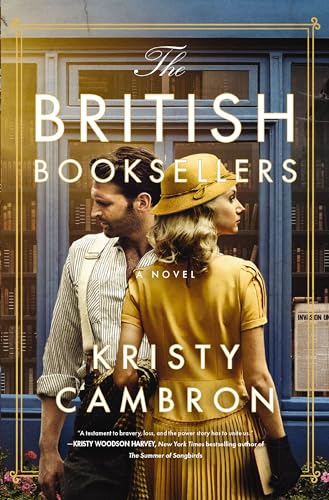The British Booksellers
Cambron’s novel underscores the devastation and horror of war, not only for soldiers but helpless civilians. Chapters alternate between 1914 and 1940, WWI and WWII, in Coventry, England. Main characters, Charlotte, an earl’s daughter, and Amos, the son of a tenant farmer, are childhood sweethearts meeting secretly to share books of the great writers: Shakespeare, Milton, Kipling, Keats, and their all-time favorite, Dickens. Their dream is to open a bookshop. He’ll do anything for her, from selling her ball gowns to buying back her cello to giving her up. They plan to elope. We’re never sure why Amos reneges or why they are later dubbed “rival” booksellers with a “stony silence” between them. Charlotte, keenly aware of family duty and social convention, marries Will Holt, Duke of Harcourt and Amos’s commanding officer. Returning from WWI, Amos opens a bookshop, remaining somewhat reclusive. Amos carries visible physical wounds as well as inner torment, suffering from PTSD: “When I’m alone blood and bombs return… as real to me as all those years ago on the battlefield. I can’t breathe and I can’t rest.”
The Land Girls add humor and fun to a mostly intense novel. “They sent us fashion plates instead of farm hands.” There’s a secondary plot and love story involving Charlotte’s daughter, Eden, and American lawyer, Jacob Cole, in England investigating an inheritance dispute. It feels contrived, poorly developed and unsatisfying. The story moves at a languid pace with repetition and plodding in the middle. There are intriguing moments in the initial love story between Charlotte and Amos, Christmas Eve 1914 on the front lines, and the big climax – the infamous bombing of Coventry. Over 500 Luftwaffe planes drop incendiary bombs, pummeling the city for 14 hours of palpable mass destruction. Cambron places us in the thick of it! Amos and Charlotte reconnect while serving tea to displaced neighbors. Amos proves his heroism when the lives of those he loves are at stake.










